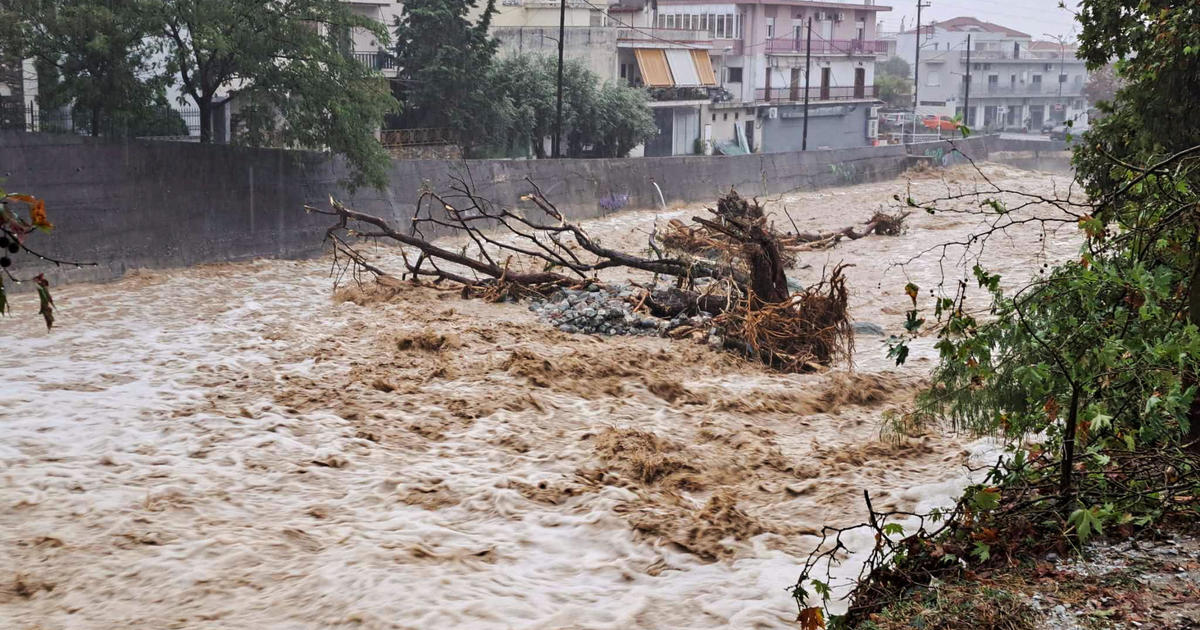Greece is currently facing severe weather conditions, including heavy rainfall and the possibility of a “medicane” forming in the Mediterranean Sea. In Zagora, an astonishing 21 inches of rain fell in just 10 hours, with the potential for another 300-500 mm (locally up to 600 mm) by Thursday. This amount of rainfall is equivalent to nearly two feet, which is highly unusual for Greece in September. This historic flooding event has caused significant infrastructure problems and even resulted in casualties.
According to data from Keraunos, a French weather and climate monitor, Zagora has received a total of 889 millimeters of rain since Monday, which is almost 3 feet. Other cities in Greece have also experienced at least a foot of rainfall during this time. These levels of rain far exceed the average September rainfall in Greece, which is typically only 16 millimeters.
Videos published by Greece’s meteorological office have shown widespread flooding across various cities, including Skiathos and Volos. The situation has been rapidly deteriorating, with cars partially submerged and power outages reported. Tragically, one man lost his life when a wall collapsed during the flooding, and another person is missing after being swept away by the floodwaters.
Experts have described this storm, named Daniel, as one of the most powerful storms Greece has experienced in recent years. The storm has shattered previous records, with daily rainfall in Central Greece surpassing levels not seen since 2006. The meteorological office has classified it as a “category 5 precipitation event,” indicating an extreme weather situation. Furthermore, the storm has caused significant infrastructure damage, in addition to the tragic loss of life.
The situation may worsen in the coming days as there is a possibility that Daniel could develop into a medicane, which is a tropical-like cyclone. Weather models suggest that such a system could form over the Ionian Sea, fueled by the ongoing marine heat wave. Medicanes typically require ocean temperatures of at least 26 degrees Celsius to form, and the current conditions are favorable for sub-tropical development. If a medicane does form, it could bring wind gusts of approximately 62 miles per hour, although its exact location is still uncertain.
These extreme weather events are part of a larger pattern of climate change, as warmer ocean temperatures create conditions for more intense storms. Greece is already grappling with the aftermath of the largest wildfire ever recorded in the European Union. The country has been dealing with numerous fires throughout the summer, and the situation remains challenging.
As Greece continues to face these environmental challenges, it is crucial to prioritize efforts to protect the planet and address climate change.
Denial of responsibility! VigourTimes is an automatic aggregator of Global media. In each content, the hyperlink to the primary source is specified. All trademarks belong to their rightful owners, and all materials to their authors. For any complaint, please reach us at – [email protected]. We will take necessary action within 24 hours.


